Tincture of dried Rosehips in Alcohol
Preparation time4 min
Waiting time28 days
Ready in28 days 4 m
Tonic, immunostimulant, anti-inflammatory, ally against joint and gout diseases
Alcoholic tincture of rosehip is a general tonic for the body, fights fatigue, increases the elasticity of vascular walls, strengthens capillaries, increases resistance to viral diseases, supports the functioning of the gastrointestinal tract, has anti-inflammatory effects and is an ally against joint and gout diseases.
Servings: 133 servings
~ 200 ml of alcoholic rosehip tincture is obtained, ie ~ 133 servings of 30 drops each (1.5 ml)
Ingredients
Estimated cost: 4.0 €
Materials
- glass container (jar)
Preparation
 We will use dried rosehips, without seeds from the tea or if we have whole dried rosehips, we will cut them in half and remove the seeds.
We will use dried rosehips, without seeds from the tea or if we have whole dried rosehips, we will cut them in half and remove the seeds.
A more effective method is to grind dried rosehips with a grinder. Even if the dried rosehips are whole, with seeds, the removal of the seeds will not be a problem, because the grinder will not be able to crush them, in the end we will sift the rosehip powder. Add the dried, seedless rosehips (pieces or rosehip powder) to the container (jar).
Add the dried, seedless rosehips (pieces or rosehip powder) to the container (jar). Add the alcohol (be sure to cover the dried rosehips) until the container is full. It is ideal to use as pure an alcohol as possible over 50 strength. You can also use brandy or vodka.
Add the alcohol (be sure to cover the dried rosehips) until the container is full. It is ideal to use as pure an alcohol as possible over 50 strength. You can also use brandy or vodka. We close the container with a lid and leave it to macerate for 4 weeks, in a dark and ventilated place. During maceration, it is recommended to shake the jar at least once a day.
We close the container with a lid and leave it to macerate for 4 weeks, in a dark and ventilated place. During maceration, it is recommended to shake the jar at least once a day.
→ In the end, it is ideal for the obtained tincture to be filtered with a sieve / gauze, then left to decant, in the refrigerator, for 3-7 days, for a complete clarification. The clear part is poured into small, dark bottles with a dropper to avoid contact with air and light during use.
→ For small quantities and if the pieces of dried rosehips are large, there is no need to filter the tincture, you can keep it as it is (even with rosehips).
→ It is recommended for consumption within 2 years of preparation.
Administration
→ Internally, 30 drops (~ 1.5 ml) are recommended 3 times a day, diluted in a little boiled and cooled water (~ 50 ml), 30 minutes before meals.
⚠ Cures of up to 2 weeks with breaks of 2 weeks are recommended.
⚠ Being an alcoholic solution of high concentration / strength, rosehip tincture will not be consumed as such, but only diluted or in composition with other foods that will cut them from strength:
⚠ Cures of up to 2 weeks with breaks of 2 weeks are recommended.
⚠ Being an alcoholic solution of high concentration / strength, rosehip tincture will not be consumed as such, but only diluted or in composition with other foods that will cut them from strength:
- diluted in distilled water (boiled and cooled water: ~ 50 ml);
- diluted in lukewarm teas;
- mixed in a teaspoon of honey;
- on a piece of dry bread;
- on a sugar cube;
Observations
→ The minimum ratio of fruit to alcohol for the preparation of the tincture is 20% fruit and 80% alcohol. So if we want to make 100 ml of tincture, we will need 20 g of dried rosehips without crushed seeds or even powder. In this recipe, I used 80 g of dried rosehip made from rosehip tea bought from plafar.
→ During maceration it is good to shake the tincture 3-4 times a day.
→ The maceration time may vary depending on the strength of the alcohol and how the rosehips were used: pieces (of tea) or powder. For example for rosehip powder and alcohol of 80% concentration, the minimum maceration time is 7 days.
⚠ Rosehip fruits contain a huge amount of vitamin C (ascorbic acid), and this, in an alcoholic agent, is completely absorbed.
Rosehip tincture composition in alcohol
→ During maceration it is good to shake the tincture 3-4 times a day.
→ The maceration time may vary depending on the strength of the alcohol and how the rosehips were used: pieces (of tea) or powder. For example for rosehip powder and alcohol of 80% concentration, the minimum maceration time is 7 days.
⚠ Rosehip fruits contain a huge amount of vitamin C (ascorbic acid), and this, in an alcoholic agent, is completely absorbed.
Rosehip tincture composition in alcohol
- beta carotene
- minerals
- vitamin K
- organic acids
- tocopherol
- tannins
- riboflavin
- thiamin
- flavonoids
- folic acid
- iron
- manganese
- magnesium
- potassium
- copper
- zinc
- calcium
- phosphorus
Effects and benefits
Supports the cardiovascular system:
- improves heart function;
- strengthens the heart muscle;
- strengthens blood vessels;
- increases the elasticity of the vascular walls;
- improves blood circulation;
- regulates blood pressure;
- lowers cholesterol;
- good in heart failure;
- prevents myocardial infarction;
- good in cardiac neurosis;
- good in angina pectoris;
- prevention of atherosclerosis;
Supports peripheral circulatory system:
- good for varicose veins;
- good for phlebitis;
- good for hemorrhoids;
- strengthens the capillaries, decreases the fragility;
Supports the respiratory system, fights colds and flu:
- increases resistance to viral diseases: viruses, colds, flu, colds;
- adjuvant in tonsillitis, rhinitis, pharyngitis, laryngitis, tracheitis, bronchitis, asthma;
- adjuvant in pneumonia;
- adjuvant in sinusitis;
- adjuvant in rhinolaryngitis;
- promotes rapid recovery from viral infections;
Supports the digestive system:
- calms the bloating;
- soothing in spastic states of the digestive tract;
- fights diarrhea;
- supports the functioning of the gastrointestinal tract;
- reduces stomach acidity;
- accelerates the flow of bile and can prevent cholecystitis;
Metabolic and endocrine disorders:
- adjuvant in diabetes;
- good in thyroid disorders;
- good in adrenal insufficiency;
Supports the urogenital tract:
- helps to reduce inflammation of the urinary tract (cystitis, skin);
- improves the condition in case of gynecological diseases;
- has a beneficial effect on the activity of the reproductive system in women and men;
Supports the osteo-articular apparatus:
- osteoarthritis, spondylosis, hip osteoarthritis;
- has an anti-inflammatory effect, being good against joint and gout diseases;
- protects the articular cartilage due to the lipids contained;
General:
- strengthens immunity;
- good tonic, energizing, fights fatigue;
- mineralizing / vitaminizing;
- has a sedative effect;
- fights inflammatory and bacterial processes;
- protects against hematological diseases / anemia;
- good appetite or lack of appetite;
- good for skin diseases (dermatological);
- good in allergic diseases - hives, pruritus, erythema;
- improves brain activity;
- good in oncological diseases;
Contraindications
- contraindicated in severe liver disease;
- contraindicated for those with thrombosis and thrombophlebitis;
- contraindicated for those with renal impairment;
- contraindicated for those with hypertension;
- contraindicated during pregnancy and lactation;
- contraindicated for those suffering from alcoholism;
- contraindicated for those allergic to the ingredients used;
- contraindicated for those with sensitive tooth enamel;
Another information
→ Rosehips are an excellent source of natural vitamin C (ascorbic acid), with some species having a vitamin C content of up to 8%.
→ In the pulp of rosehips we also find pectins, tannins, sugars, organic acids and mineral salts, essential oils, catechins and flavonoids, carotenoids and beta-carotene (precursor of vitamin A, hence the red color of the fruit).
→ They are high in B-set vitamins (B1, B2, B3 / PP, B4 and B9), vitamin A, E and together with vitamin C reduce capillary permeability and fragility. They also contain vitamin K and nicotinic acid.
→ In the pulp of rosehips we also find pectins, tannins, sugars, organic acids and mineral salts, essential oils, catechins and flavonoids, carotenoids and beta-carotene (precursor of vitamin A, hence the red color of the fruit).
→ They are high in B-set vitamins (B1, B2, B3 / PP, B4 and B9), vitamin A, E and together with vitamin C reduce capillary permeability and fragility. They also contain vitamin K and nicotinic acid.
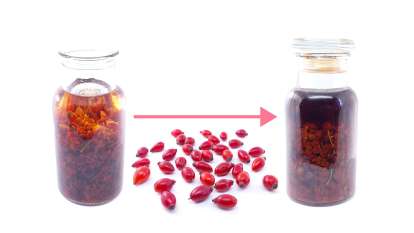
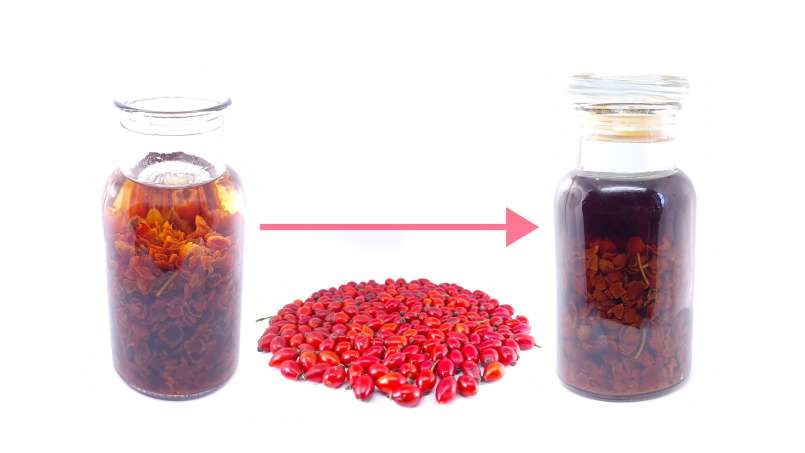
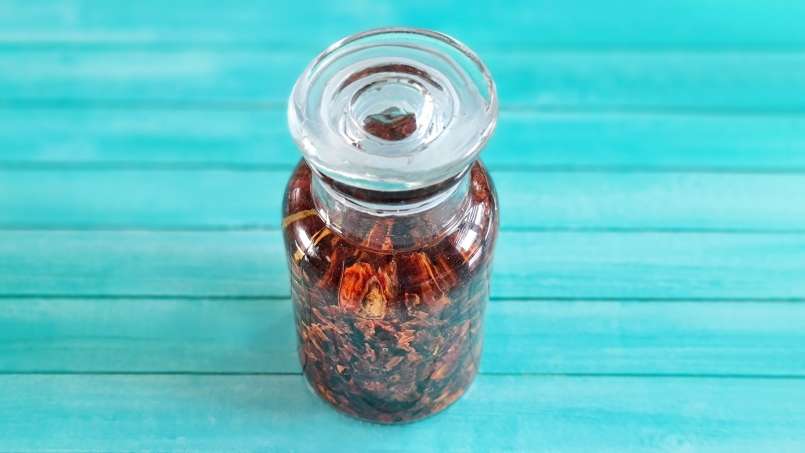
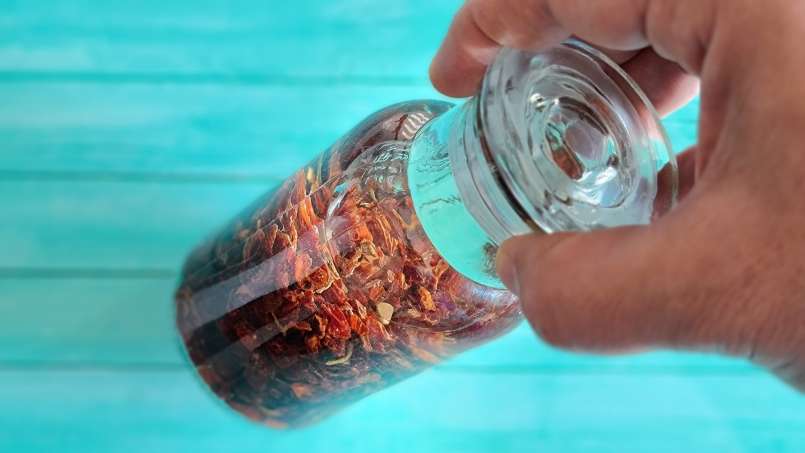
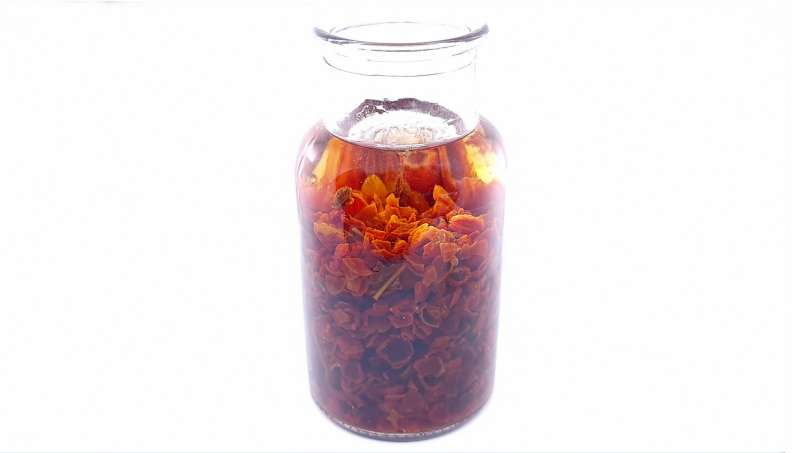
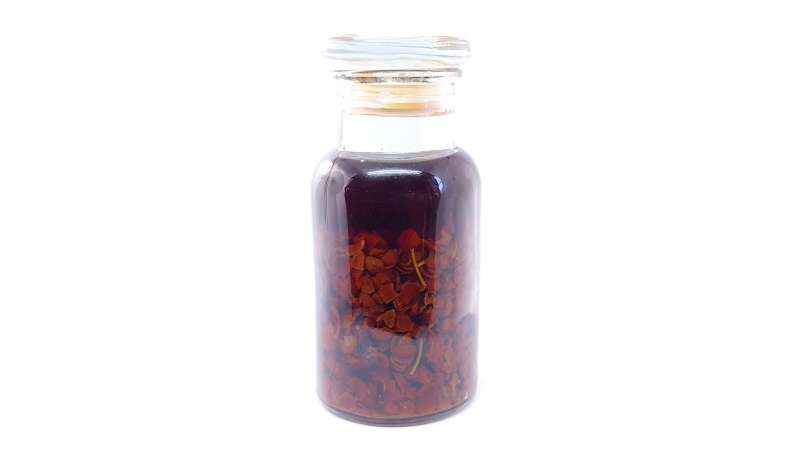
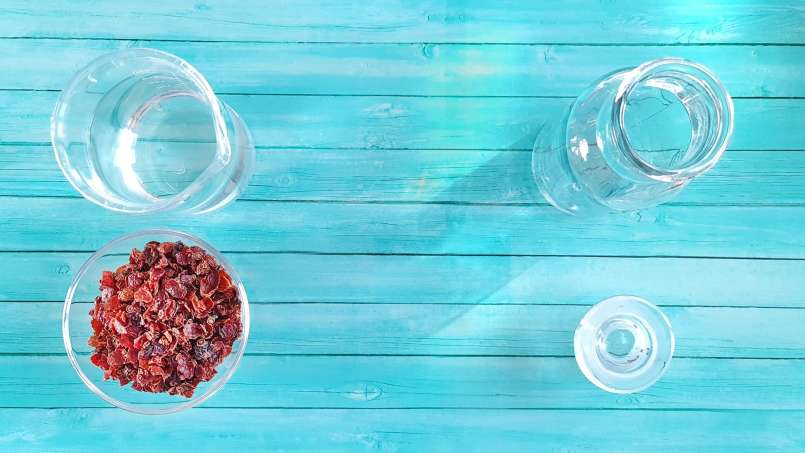
Comments